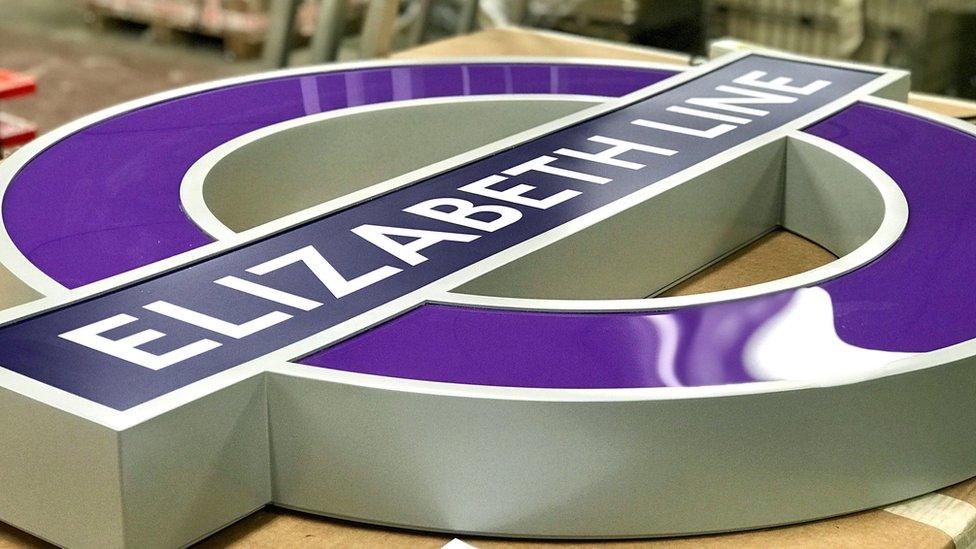Tube strikes: Key questions answered
- Published
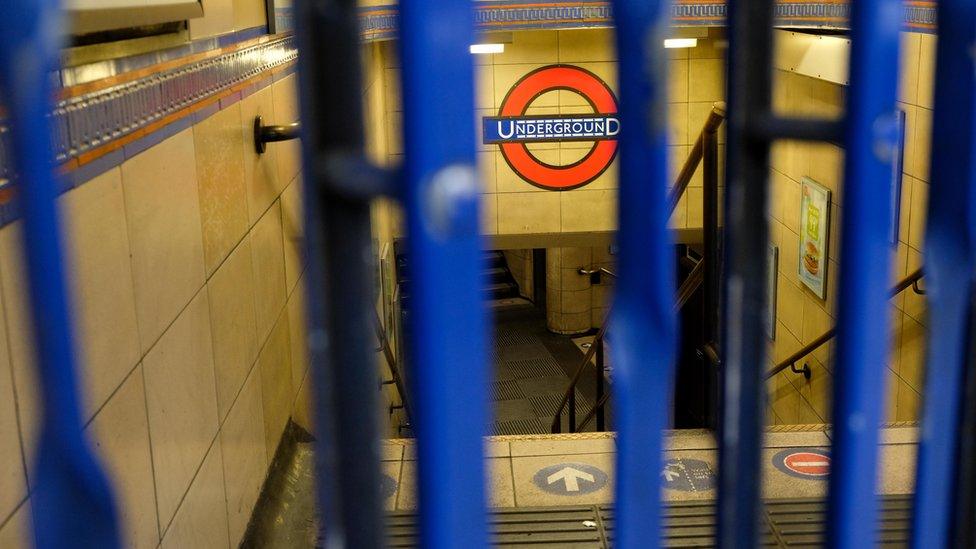
A fresh round of industrial action will see two 24-hour Tube strikes take place in the first week of March. Why?
What are the strikes about?
Transport for London (TfL) is almost totally reliant on fares and since the pandemic began, passengers have stayed away.
It has meant central government has had to step in with emergency funding, but the money has had strings attached.
The mayor has had to make £400m in savings, raise up to £1bn in extra revenue, and carry out a review of TfL's pension fund.
The £400m savings mean the closure of 600 posts on the Underground, which will be done by not filling in behind those who leave or retire - there will be no compulsory redundancies.
The unions don't like that but the big, big issue is the pension reform.
At the moment TfL pays about £360m into the pension fund a year. Some in government think that is too much and the scheme is too expensive.
The phrase used by the government is that the scheme must be moved to being "financially sustainable".
TfL says no proposals are on the table and it is carrying out an independent review. However, that is enough for the unions to ballot.
The Rail, Maritime and Transport Workers union (RMT) says it will not countenance any changes to the pension scheme. It also says the pension is in surplus and is a key benefit to TfL employees.
Without any guarantees that the pension will not be changed, it has implemented strike action.
How bad will the disruption be?
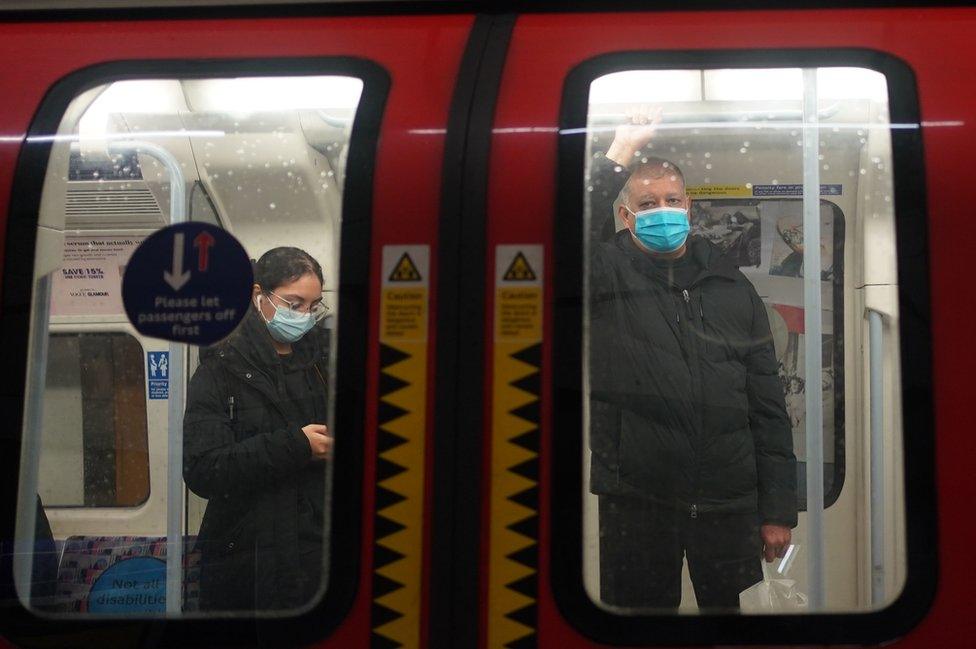
For passengers, the strikes will cause considerable disruption. It could close the Tube system entirely. The RMT has told all of its 10,000 Tube members across all grades to not report for duty on Tuesday and Thursday.
The last big strike like this was in 2017 and then only a skeleton service ran.
However, what will be interesting is the impact of home working. TfL have explicitly told people to work from home if they can.
About 50% of Londoners can work from home so many will not even try and get into the office.
Although many key workers clearly still have to make journeys to work, will this change the dynamic of Tube strikes and the impact they have?
Will there be more strikes?
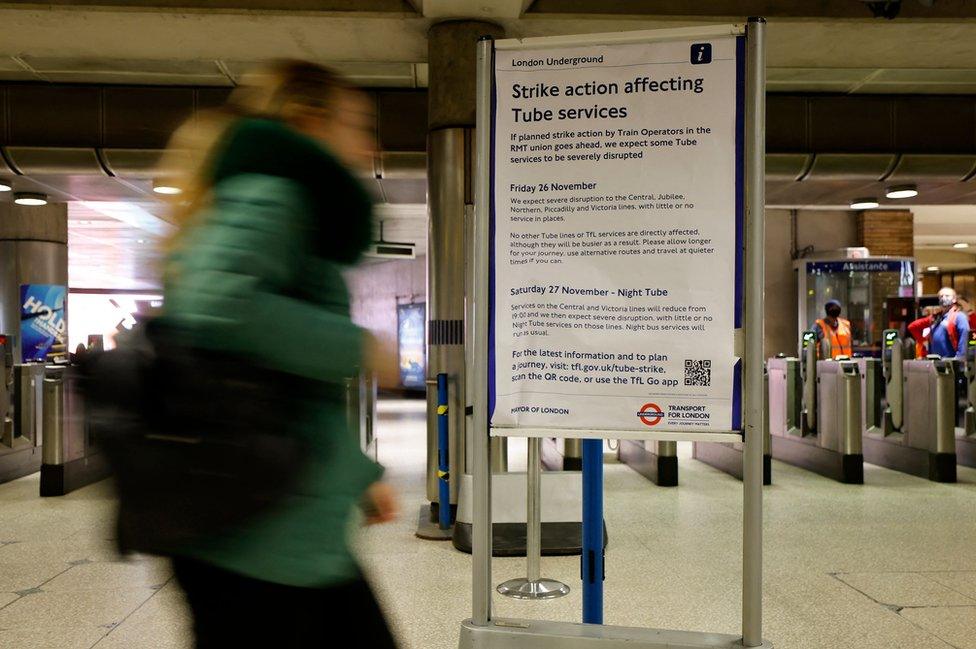
This is a red hot issue for the unions. The other unions - ASLEF and the TSSA - also do not want changes to the pension.
The government has said the mayor should present a report on how to make the pension scheme "financially sustainable" by the end of March.
The funding document says: "As part of the review of TfL's pension scheme, TfL will deliver a final report, including a recommended approach and implementation plan by no later than 31 March 2022."
It feels more like the beginning than the end of this dispute and that means more strikes are likely.

Follow BBC London on Facebook, external, Twitter , externaland Instagram, external. Send your story ideas to hellobbclondon@bbc.co.uk, external
- Published9 July 2021
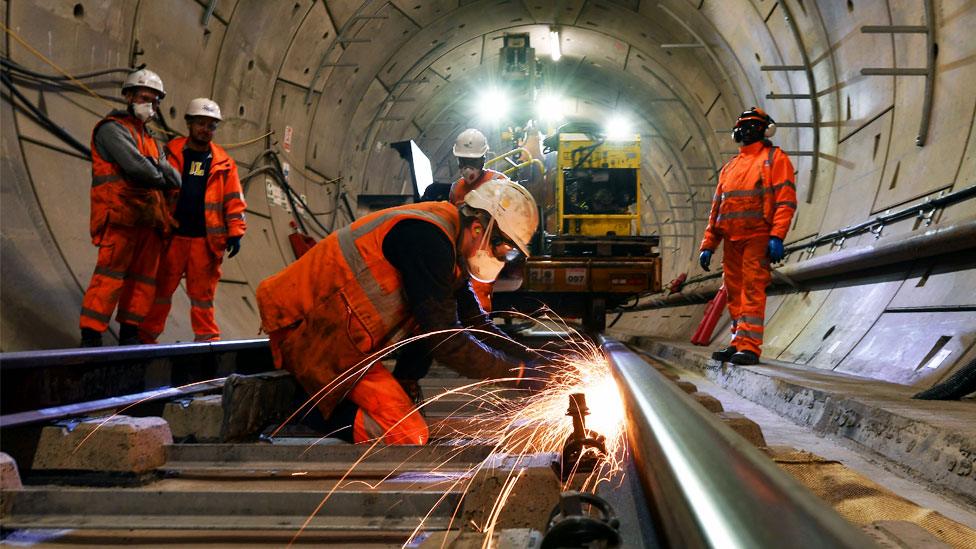
- Published16 June 2020
- Published10 December 2018
